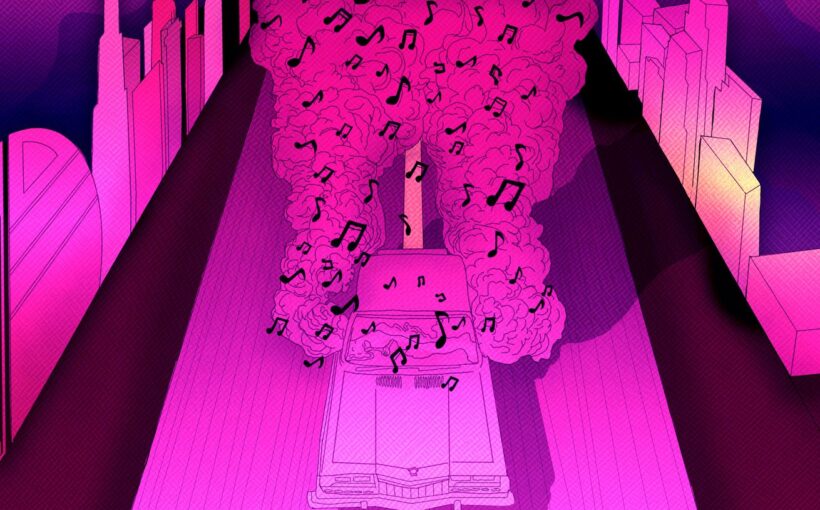
In 2017, I moved 8,345 miles from my family — from my pink and green painted childhood bedroom in Dubai to a dorm room at USC. Overnight, my world changed. I went from my parents’ mollycoddled child to an adult that had to do their own laundry. The whiplash was heavy, and images of my old life kept echoing in my head. When I woke up to hear the birds outside my window, I half expected to hear my mom playing her Suprabhatam devotional music, loud enough to shake the floor. I’d remember late mornings in Dubai, listening to the radio after missing the school bus, sleepily ingesting the Bollywood Top 40 my parents had on in the car. After class, heading to cram school, I’d blast Mura Masa loud enough to crush my eardrums.
On the way home, the bus driver, Yadav, piped Malayali songs through the school bus speakers.
In my new life in Los Angeles, I was cut off from that music. The radio stations from home didn’t have internet streaming. My Hindi and Tamil were patchy, so I couldn’t Google lyrics or ask my mum about the song that was stuck in my head. At parties, I pretended to know the lyrics to “Mo Bamba” and “Sicko Mode,” and I did without music the rest of the time. The silence was lonely.
Music streaming had been a relatively foreign concept to me growing up in Dubai. My family didn’t pay for Apple Music, and Spotify didn’t reach the Middle East until 2018, after I’d already moved out for college. My experience of these songs was tied up with the South Asian community in Dubai, which supported its own world of radio stations and dance bars. Frat row at USC certainly didn’t have that infrastructure, and neither did the rest of LA. So I began looking elsewhere.
When I finally gave in and downloaded Spotify, it felt like being able to see color for the first time. I found myself thinking, day after day, “THIS is the song that’s been stuck in my head for five years!” Spotify-curated playlists like Desi Hits were a start, but they felt artificial — like some algorithm had just scraped a database of the most recent Bollywood releases. I was looking for shelter in nostalgia, and user-built playlists scratched just that itch. I’d Google keywords relentlessly, consuming as much music by and for Brown people as I possibly could. I would listen to Akshiti’s popular millennial Bollywood playlist while cooking and cry along with desi sad boi hours while I showered. It felt like I was back in Dubai, listening to music in the car with my mum, as if I’d dug a tunnel through the world.
The AI music software by pudding.cool, which roasts your taste in music, calls mine “former-boy-bander-stan-music-to-stalk-boys-to-please-read-my-manuscript-bad” (unfortunately, an accurate description of who I am). And eventually, Spotify’s algorithm caught on to my Bollywood listening habits, both matching my tastes and expanding them.
It was comforting to rediscover oldies I remembered from my parents’ parties — but it was even better to find my own generation’s music. Soon, I could put my friends onto emerging Desi artists, get recs back from them, and make new playlists like the ones I had sought solace in freshman year. I felt like I was finally part of my own culture — a community of young, weird, lost diaspora kids carving out a musical niche on the internet.
Source: TheVerge



